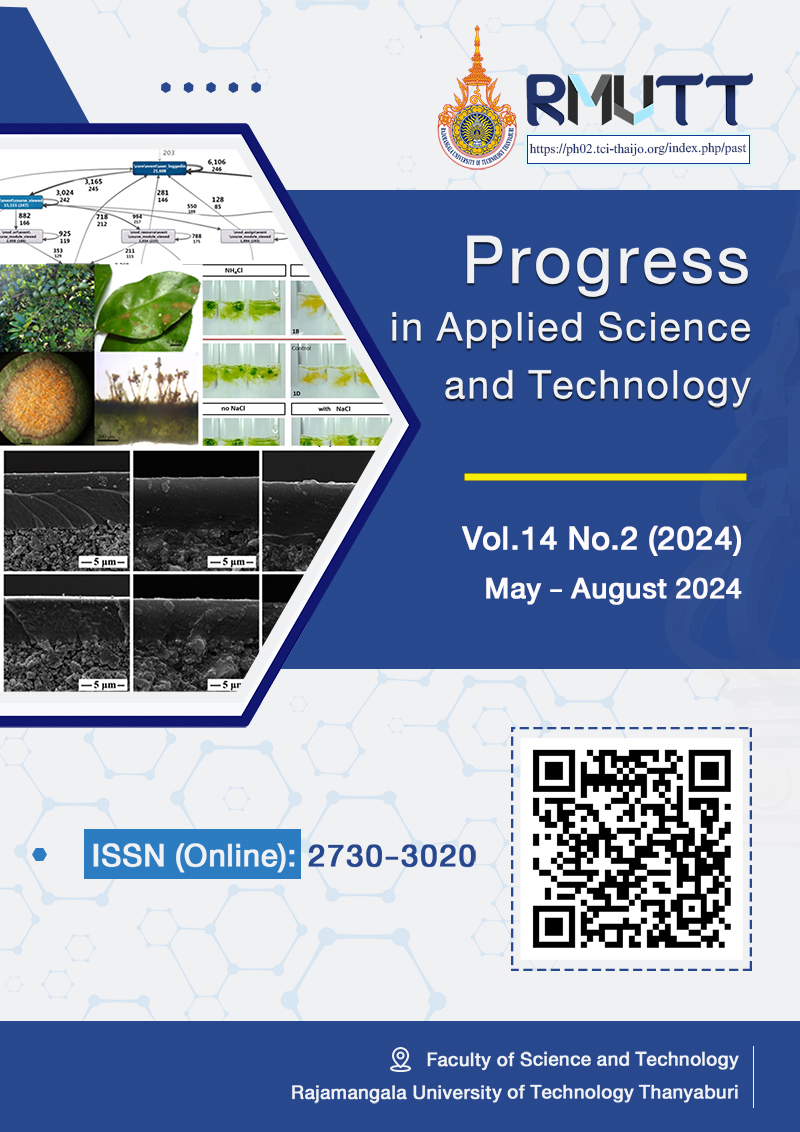Predicting Prices of Airbnb Accommodations in Thailand by SVM and XGBoost Methods
Main Article Content
Abstract
In this study, our objective was to predict accommodation prices in Bangkok utilizing Airbnb data. The data went through necessary preparation procedures and was split into training and test sets. Both support vector machines and extreme gradient boosting methodologies were employed and optimized through hyperparameter tuning. However, the detection of overfitting necessitated a reassessment of feature selection. Several features were identified as having high importance values in both models, including the number of bedrooms, proximity to tourist destinations and landmarks in Bangkok, maximum property capacity, and the number of host listings. Additionally, support vector machines with the top 10 features outperformed other models, exhibiting the lowest mean absolute error (385.37) and root mean squared error (526.16) values. Crucially, features such as the number of bedrooms, proximity to tourist destinations, maximum property capacity, private room type, and provision of safety and facility information played significant roles. In conclusion, this study emphasizes the significance of machine learning in comprehending accommodation prices. The results highlight the importance of considering specific features, such as those identified, when setting accommodation prices.
Article Details

This work is licensed under a Creative Commons Attribution-NonCommercial-NoDerivatives 4.0 International License.
References
Bank of Thailand. Bank of Thailand Annual Report 2022 [Internet]. Bangkok: Bank of Thailand; 2022 [cited 2024 Feb 20]. Available from: https://www.bot.or.th/content/dam/bot/documents/en/research-and-publications/reports/annual-report/AnnualReport2022.pdf
Mastercard. Global Destination Cities Index 2019 [Internet]. Purchase, New York: Mastercard; 2019 [cited 2024 Feb 24]. Available from: https://www.mastercard.com/news/media/wexffu4b/gdci-global-report-final-1.pdf
Yang S. Learning-based Airbnb Price Prediction Model. 2021 2nd International Conference on E-Commerce and Internet Technology (ECIT). 2021. p. 283-288.
Zhu A, Li R, Xie Z. Machine Learning Prediction of New York Airbnb. 2020 Third International Conference on Artificial Intelligence for Industries (AI4I). 2020. p. 1-5.
Chen Y, Xie K. Consumer valuation of Airbnb listings: A hedonic pricing approach. Int J Contemp Hosp M. 2017;29(9):2405-24.
Wang D, Nicolau JL. Price determinants of sharing economy based accommodation rental: A study of listings from 33 cities on Airbnb.com. Int J Hosp Manag. 2017;62:120-31.
Gibbs C, Guttentag D, Gretzel U, Morton J, Goodwill A. Pricing in the sharing economy: A hedonic pricing model applied to Airbnb listings. J Travel Tour Mark. 2018;35(1):46-56.
Smola AJ, Schölkopf B. A tutorial on support vector regression. Stat Comput. 2004;14:199-222.
Sánchez AS, Nieto PG, Fernández PR, del Coz Díaz J, Iglesias-Rodríguez FJ. Application of an SVM-based regression model to the air quality study at local scale in the Avilés urban area (Spain). Math Comput Model. 2011;54(5-6):1453-66.
Sharma H, Harsora H, Ogunleye B. An Optimal House Price Prediction Algorithm: XGBoost. Analytics. 2024;3(1):30-45.
Probst P, Boulesteix AL, Bischl B. Tunability: Importance of hyperparameters of machine learning algorithms. J Mach Learn Res. 2019;20(53):1-32.
Bergstra J, Bengio Y. Random search for hyper-parameter optimization. J Mach Learn Res. 2012;13(2):281-305.






